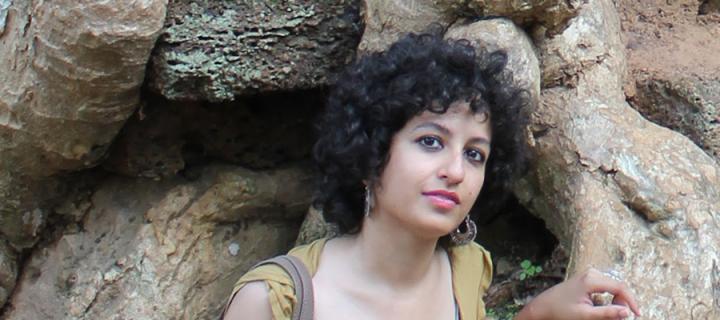Safieh Shah
After completing medical school in Pakistan, Safieh Shah was drawn to Edinburgh by its history and the Public Health masters for an opportunity to fully embrace research.
| Name |
Safieh Shah |
| Degree Course |
MSc Public Health Research |
| Year of Graduation | 2010 |

Tell us about your time at the University
When I was in my third year at Baqai Medical University in Pakistan , I was invited to study an elective at the University of Pennsylvania in Philadelphia. It was there I fell in love with medical science and research, and found out that the University of Pennsylvania medical school was modelled after Edinburgh’s. Following this discovery, I started reading about the history of Scotland and learned about all the incredible men and women who hailed from or happened upon Edinburgh during the path of their enlightenment. I have always been fascinated by the approach Scottish history has taken in terms of telling it as honestly as possible – warts and all – so when I completed medical school I decided to apply for my masters in Public Health at a place which inspired me and so many others throughout history.
Having lived in a coastal city for most of my life prior to my move, the first ‘real’ winter I experienced was in Edinburgh. This was a lot less traumatic than expected thanks to the people of Edinburgh. They were always very helpful, friendly, open, welcoming, and they were excellent hosts making me feel at home. Edinburgh lived up to its reputation of being an artistic and cultural hub and being a jazz devotee and classical piano player, Edinburgh was supportive of my musical pursuits and I even performed as part of the DrumSoc (African Drumming Society of the University of Edinburgh) at The Jazz Bar on Chambers Street to a packed house.
Having grown up in a post-colonial society that was still caught in the throes of its past, I felt a strong affinity to the narrative and thoughts of Scottish society. I felt that many of the fears and hopes that defined Pakistani people resonated in Scotland and particularly in Edinburgh. Speaking with the locals led me to draw parallels between our own shared historical experiences and it was while living in Edinburgh that I started to openly explore the fluid nature of science and the subjectivity of all concepts, realities, societies, norms and human behaviour.
From setting up databases to tracking the global ebola epidemic, to helping research-based advocacy against sexual violence in India and helping manage the influx of refugees in Greece, I have been able to apply the confidence and compassion I learnt at Edinburgh to each of these global issues.
Tell us about your experiences since leaving the University
Coming from a background where medicine is not systematically taught as a science, I resolved to take the opportunity to enrol in and take as many research methodology classes during my masters as I could to glean a holistic understanding of the multitude of ways research can be employed to inform change at different levels. As a result, I have been working to teach ‘data culture’ and ‘research culture’ within low-resource settings in Pakistan, South Asia as well as anywhere else I work. I helped prevent a dengue outbreak using little more than my knowledge, some government workers, and a program on Microsoft Excel. I was able to utilise WHO guidelines to design a program that would let government health workers diagnose dengue, test for it and then encode the data from it. It felt particularly fulfilling to pull this off in a conflict-affected part of the country, where a dengue outbreak could well have been catastrophic.
Since I completed my Master’s degree, I have committed myself to operate on the frontlines of many of the world’s most pressing health concerns. From setting up databases to tracking the global ebola epidemic to helping research-based advocacy against sexual violence in India, to helping manage the influx of refugees in Greece, I have been able to apply the confidence and compassion I learnt at Edinburgh to each of these global issues.
As an activist in Pakistan, I feel it's important to take into account that effective public health measures can have profound social and political changes, which is how I decide what to focus my work on. This year I am the Editorial Lead for the Médecins Sans Frontières (MSF) Scientific Day – South Asia and my vision is to empower regions to foster their own identity via the decolonisation of their health agenda.
Alumni wisdom
Immerse yourself in Edinburgh – there are few cities that carry off an ancient feel so effortlessly with the best of what the contemporary world has to offer. A city that is immediately all embracing and yet also a place to find yourself in wholesome solitude.

